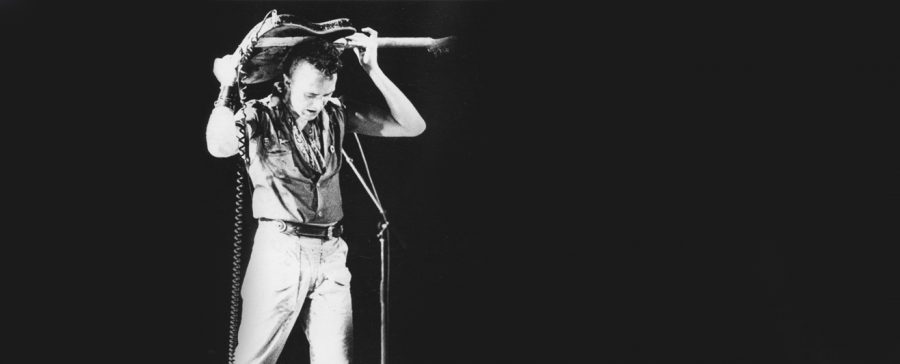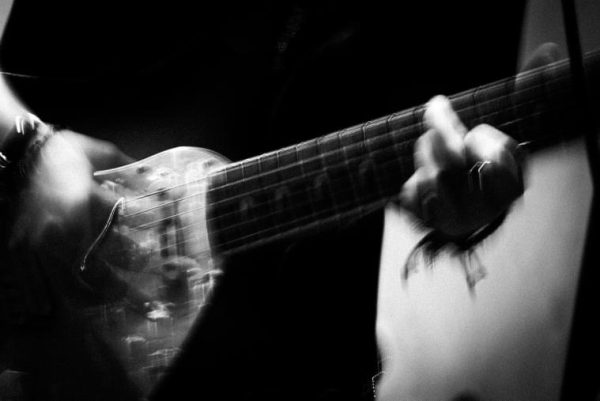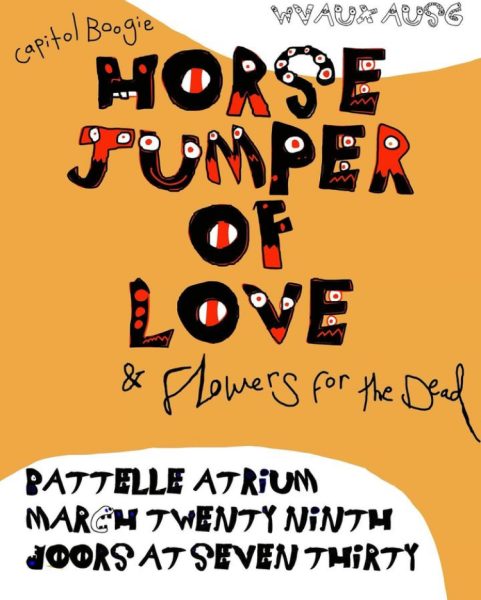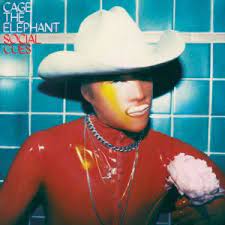Returning to Strummerville
May 5, 2022
Towards the start of the pandemic, a video came out celebrating Joe Strummer on what would have been his 68th birthday. In tribute, dozens of artists ranging from those deriving of a similar genre to that of the Punk Rock Warlord himself to total out-of-left-fielders like Bob Weir, former rhythm guitarist for the Grateful Dead, covered a sizable chunk of the songs he penned in his lifetime. Needless to say, the sheer scope of the backgrounds for those involved was impressive and after the initial surprise had worn off, I got to thinking about how Strummer could’ve influenced so many people of such diverse backgrounds and recollecting about my past— remembering my first article for WVAU and the evolution of my relationship to Joe Strummer’s work since then.
Returning to my first outing is awkward to say the least. Since the overall structure and format of the site itself has very much changed in the 4.5 years following the article’s release, its own structure and format has grown debilitated; curious symbols of outdated code flit in and out of the piece, rendering certain parts illegible if not a complete eyesore. Looking at other examples of my early output on the site, the same issue pops up. While there’s really no one to blame for this— clout need not equate to good payment for regular maintenance of entire websites, especially when you’re a college student— I feel the decline of the article’s general state meshes well with the thoughts had and emotions experienced in relation to the aforementioned video, both in regards to myself and to my view of Joe Strummer.
Reading the article, I am reminded of why I wrote it in the first place. Just happy to be a part of this student organization, I had hastily signed up for the Web Staff of WVAU (Represent!) without a single clue as to what I would write about. So, once it was my turn to send in a piece, I opted to examine the subject that was easiest for me to write about, i.e. Joe Strummer. For perspective, I wager that if you had asked me who my hero through 2013 until 2017 was I would’ve likely answered you in a snap and with a slight sneer that it was him. Up to that point in my life, his work in and outside The Clash had all but completely enveloped the entirety of my creative attention, my 18-year-old self likely having memorized dozens if not hundreds of songs penned by Strummer by the time of the article’s release. But, if that’s the case, what changed?
Well, lots. Minding what was to follow in my personal life after the article came out, I think what I had originally thought was gritty political realism with regards to Strummer’s work had transformed into something hollow, an example of how truly revolutionary beliefs deflate in the face of potential commercial success. I read more political theory, absorbed media that was critical of Strummer, and a picture of a man that had essentially built an entire artistic career on phoning in his own beliefs was painted. To boot, I had also discovered a surplus of other creatives whose work also embodied the values Strummer had once impressed me with but executed in a manner that I had felt was far more honest. So, feeling disillusioned with Joe’s work, I tried to move on. Emphasis on tried.
As the old saying goes, “once a [insert noun here], always a [insert noun here]”, and that certainly applied to me as a Joe Strummer fan. There was good reason for why I had originally grown to love his work so much and I realized all too late that his influence had infected every aspect of my creative identity by the time I started shunning it. I still listened to his work; I covered his songs at shows I performed at. Hell, I went to a Joe Strummer tribute show and knew more of the words to his songs than the people performing! At some point during the show, they even joked that I should be singing instead of them! By God, what spell had this man put on me?! Years pass by and we return to that video, my first article, and in doing so I feel like I’ve finally completed a journey of my own now, again both in regards to myself and to my view of Joe Strummer. I’ve grown up, I’ve experienced some the best and worst times life has to offer, and even though he took a backseat of sorts, Joe Strummer remained a constant on that adventure.
So, try as I might to criticize or ground Mr. Strummer with regards to the supposedly fraudulent nature of his politics, I have to admit that I still can’t help but want to imitate him. When I first learned how to play guitar, I didn’t dream about elaborate solos, spinning myself around in a frenzy, or pogoing myself into the ceiling; I imagined myself with my back to the audience, hunched and furiously down-stroking on my guitar in much the same way Joe does around ten seconds into this video. There’s such ferocity in his movement but such stoicism in his stance, as if he’s trying to tame a feral wildcat without anyone noticing. To me, that was/is the peak of what guitar-playing should look like. The peak was Joe Strummer, I wanted to be Joe Strummer.
And to be honest, I still do. It’s great to be back.
_______________________________________________________________________________________________________________
One more thing before I go, though. As this is my last semester at AU, this article is my last regular article for WVAU. For 4.5 years, it’s been an absolute blast to put out content for this organization. I was given the opportunity to interview bands I love, go to awesome shows, write about albums I cherish and more, provided all the while with a kind of freedom that I don’t think I’ll have the privilege to indulge outside of this club. The only thing I regret is not writing up an article every single week during my tenure but c’est la vie. Regardless, from the bottom of my heart— thank you so much for reading. WVAU FOREVER!















